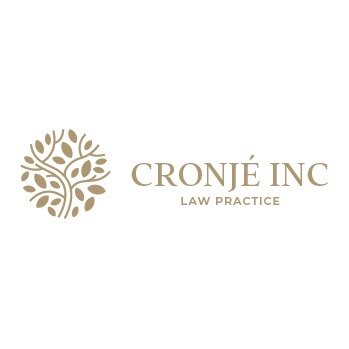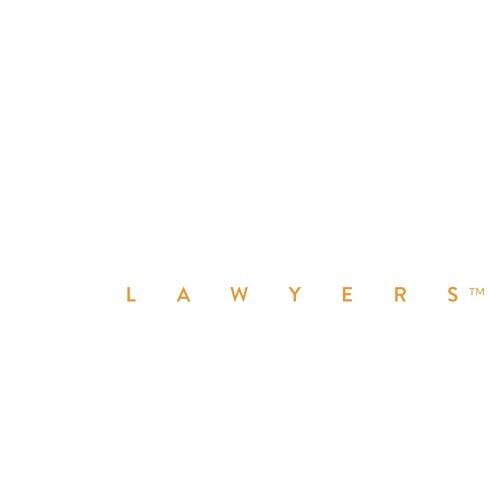Best Public-Private Partnerships (PPP) Lawyers in Namibia
Share your needs with us, get contacted by law firms.
Free. Takes 2 min.
Or refine your search by selecting a city:
List of the best lawyers in Namibia
About Public-Private Partnerships (PPP) Law in Namibia
Public-Private Partnerships, commonly known as PPPs, are collaborative arrangements between government entities and private sector companies to deliver public services, develop infrastructure, or manage government assets. In Namibia, the adoption of PPPs has become an important mechanism for fostering economic growth, improving public services, and developing infrastructure such as roads, ports, healthcare facilities, and energy projects. The government has developed specific legal frameworks and guidelines to ensure that PPPs are transparent, efficient, and beneficial to both the public and private sectors. Understanding these frameworks is essential for anyone looking to participate in or be affected by PPP projects in Namibia.
Why You May Need a Lawyer
Engaging in a PPP in Namibia involves navigating complex legal and regulatory requirements. Here are common situations where seeking legal assistance is crucial:
- Drafting and reviewing PPP agreements to ensure compliance and protect your interests
- Understanding your rights and responsibilities in a partnership with a government body
- Advising on procurement processes and compliance with Namibia's PPP laws and regulations
- Assisting with dispute resolution that may arise during the execution of a PPP project
- Conducting due diligence on investment risks and regulatory requirements
- Providing legal opinions on tax, land use, labor, and environmental considerations in PPP projects
- Navigating financing arrangements and related legal structures
A lawyer with experience in PPP law can guide you through these processes, helping to mitigate risks and enhance the success of your involvement in a PPP.
Local Laws Overview
Namibia governs its Public-Private Partnerships under several laws and guidelines. The key legal instrument is the Public-Private Partnership Act, 2017, which established the foundation for the regulation, approval, and implementation of PPPs. The Ministry of Finance is primarily responsible for overseeing PPPs through its Public-Private Partnership Committee. Some key aspects of local laws relevant to PPPs in Namibia include:
- The requirement for thorough feasibility studies and risk assessments before project approval
- Mandatory public sector comparators to assess value for money in proposed PPP projects
- Regulated procurement and tendering procedures to ensure transparency and competition
- Procedures for approval of PPP projects by the relevant authorities
- Obligations for ongoing monitoring and reporting on project performance
- Specific considerations for land use, ownership, and environmental compliance
- Guidelines for the equitable allocation of risks between the public and private partners
Additionally, PPPs must comply with Namibia's broader regulatory landscape, including environmental, labor, and tax laws.
Frequently Asked Questions
What is a Public-Private Partnership (PPP) in Namibia?
A PPP in Namibia is a collaboration between a government body and a private entity designed to deliver public assets or services, typically where the private party provides funding, expertise, or operational capabilities in return for a return on investment.
Who regulates PPPs in Namibia?
PPPs are regulated by the Ministry of Finance, specifically through the Public-Private Partnership Committee established under the Public-Private Partnership Act, 2017.
What types of projects can be structured as PPPs?
Typical PPP projects in Namibia include infrastructure development such as roads, hospitals, schools, water and sanitation services, power generation, and transportation facilities.
How are PPP projects selected and approved?
Projects are selected based on public need, feasibility studies, value for money assessments, and must be approved by the relevant line ministry, the Ministry of Finance, and the PPP Committee.
What are the key steps in the PPP process?
The process typically involves project identification, feasibility assessment, procurement, agreement negotiation, contract execution, and ongoing project monitoring and management.
What are the main risks involved in PPPs?
Risks can include financial risks, project delivery delays, changes in law or policy, environmental compliance, and allocation of responsibilities between parties.
How are disputes in PPP projects resolved?
Disputes are usually resolved through negotiation, mediation, arbitration, or in some cases, litigation, as specified in the PPP agreement.
Can foreign companies participate in Namibian PPPs?
Yes, foreign companies can participate, subject to compliance with Namibian law and any requirements for local ownership, technology transfer, or skills development that may apply to specific sectors.
What are the public disclosure requirements for PPPs?
PPPs must adhere to transparency requirements, including the public disclosure of project agreements, performance reports, and financial information, as mandated by the PPP Act and related regulations.
Does the government provide any guarantees to private partners in PPPs?
The government may provide guarantees in certain PPP arrangements, but this is subject to careful evaluation and approval, considering the fiscal impact and specific project risks.
Additional Resources
If you require more information or wish to explore further, the following resources and bodies can be helpful:
- Ministry of Finance - Public-Private Partnership Unit, responsible for regulatory oversight
- Public-Private Partnership Committee, established under the PPP Act
- Namibia Investment Promotion and Development Board, offering guidance for domestic and foreign investors
- Namibian Chamber of Commerce and Industry, providing updates and networking opportunities
- Law Society of Namibia for referrals to legal practitioners with PPP expertise
- Official government portals for access to laws, regulations, and PPP project updates
Next Steps
If you are considering entering into a Public-Private Partnership in Namibia or require legal advice regarding an existing PPP, it is important to take the following steps:
- Gather all relevant information and documentation about the proposed or ongoing PPP project
- Identify your specific legal questions or challenges, such as contract terms or regulatory compliance
- Consult a qualified lawyer with experience in Namibian PPP law for tailored legal advice
- Engage with relevant government bodies early in the process to ensure compliance
- Stay informed of updates to the PPP legal and regulatory framework, as these can impact your rights and obligations
- Consider participation in seminars or workshops on PPPs offered by industry associations or governmental agencies
Legal advice is crucial to navigate the complexities of PPP law in Namibia and to safeguard your interests throughout the process.
Lawzana helps you find the best lawyers and law firms in Namibia through a curated and pre-screened list of qualified legal professionals. Our platform offers rankings and detailed profiles of attorneys and law firms, allowing you to compare based on practice areas, including Public-Private Partnerships (PPP), experience, and client feedback.
Each profile includes a description of the firm's areas of practice, client reviews, team members and partners, year of establishment, spoken languages, office locations, contact information, social media presence, and any published articles or resources. Most firms on our platform speak English and are experienced in both local and international legal matters.
Get a quote from top-rated law firms in Namibia — quickly, securely, and without unnecessary hassle.
Disclaimer:
The information provided on this page is for general informational purposes only and does not constitute legal advice. While we strive to ensure the accuracy and relevance of the content, legal information may change over time, and interpretations of the law can vary. You should always consult with a qualified legal professional for advice specific to your situation.
We disclaim all liability for actions taken or not taken based on the content of this page. If you believe any information is incorrect or outdated, please contact us, and we will review and update it where appropriate.
Browse public-private partnerships (ppp) law firms by city in Namibia
Refine your search by selecting a city.















